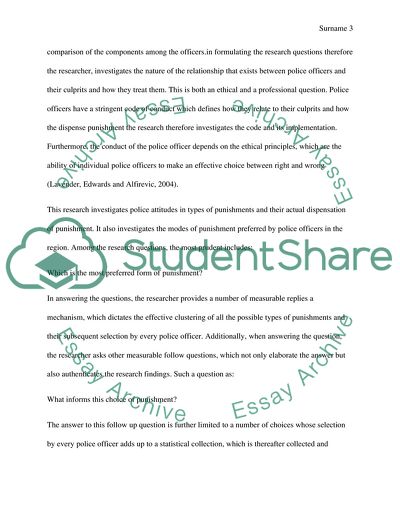Cite this document
(The Conduct of the Police Officer Case Study Example | Topics and Well Written Essays - 2000 words, n.d.)
The Conduct of the Police Officer Case Study Example | Topics and Well Written Essays - 2000 words. Retrieved from https://studentshare.org/law/1796259-scenario-police-officers-attitudes-towards-punishment
The Conduct of the Police Officer Case Study Example | Topics and Well Written Essays - 2000 words. Retrieved from https://studentshare.org/law/1796259-scenario-police-officers-attitudes-towards-punishment
(The Conduct of the Police Officer Case Study Example | Topics and Well Written Essays - 2000 Words)
The Conduct of the Police Officer Case Study Example | Topics and Well Written Essays - 2000 Words. https://studentshare.org/law/1796259-scenario-police-officers-attitudes-towards-punishment.
The Conduct of the Police Officer Case Study Example | Topics and Well Written Essays - 2000 Words. https://studentshare.org/law/1796259-scenario-police-officers-attitudes-towards-punishment.
“The Conduct of the Police Officer Case Study Example | Topics and Well Written Essays - 2000 Words”. https://studentshare.org/law/1796259-scenario-police-officers-attitudes-towards-punishment.


